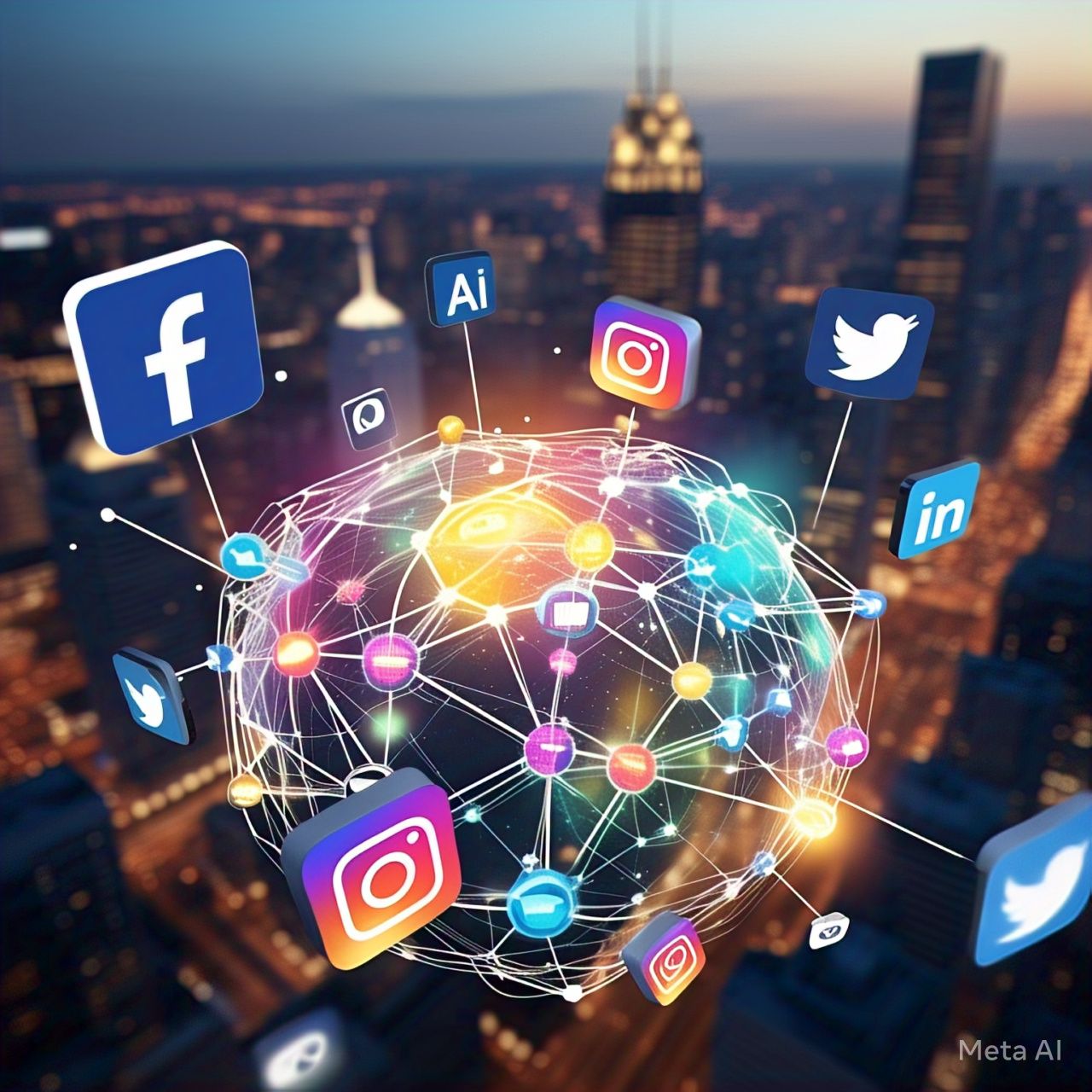Table of Contents
- Introduction
- The Role of AI in Social Media
- How AI Algorithms Work
- Personalization and Content Recommendation
- AI in Social Media Advertising
- Moderation and Fake News Detection
- The Ethical Concerns of AI in Social Media
- Future Trends in AI-Driven Social Media Algorithms
- Conclusion
- FAQs
1. Introduction
Social media platforms have evolved drastically in the past decade, with AI playing a central role in shaping user experiences. From personalized content feeds to detecting harmful content, AI-driven algorithms dictate what users see, engage with, and interact with online. This article explores how AI is transforming social media algorithms, its benefits, and its ethical implications.
2. The Role of AI in Social Media
AI is the backbone of modern social media platforms. It powers search functionalities, recommends content, filters spam, detects harmful content, and even automates customer support through chatbots. Social media giants like Facebook, Twitter, Instagram, TikTok, and LinkedIn utilize AI for user engagement and content moderation.
3. How AI Algorithms Work
AI algorithms analyze vast amounts of user data, including likes, shares, comments, watch time, and interactions, to determine the most relevant content. They rely on Machine Learning (ML), Natural Language Processing (NLP), and Computer Vision to process text, images, and videos efficiently.
Table: Key AI Technologies in Social Media
| AI Technology | Application in Social Media |
|---|---|
| Machine Learning | Content recommendation, personalization |
| Natural Language Processing (NLP) | Spam detection, sentiment analysis |
| Computer Vision | Image recognition, video analysis |
| Deep Learning | Chatbots, automated replies |
| Reinforcement Learning | Optimizing ad placements |
4. Personalization and Content Recommendation
AI ensures that users see content tailored to their preferences. It analyzes browsing history, past engagement, and demographic data to personalize feeds. Netflix, YouTube, and TikTok’s recommendation engines are prime examples of AI-driven personalization.
Example:
- Facebook and Instagram use AI to show posts from friends and brands that users interact with the most.
- TikTok’s “For You” page is powered by AI, which studies user behavior in real time.
5. AI in Social Media Advertising
AI is revolutionizing digital advertising by targeting users with highly relevant ads. It enables platforms to automate bidding, predict customer behavior, and create personalized ad campaigns. Google Ads and Facebook Ads rely on AI to optimize ad reach and engagement.
Benefits of AI in Advertising:
- Better targeting: AI analyzes user behavior to ensure ads reach the right audience.
- Higher ROI: Predictive analytics help in better ad placements.
- Automated content creation: AI generates engaging ad copies and images.
6. Moderation and Fake News Detection
AI helps combat misinformation and harmful content by detecting spam, fake news, and hate speech.
Methods AI Uses for Moderation:
- Fact-checking bots: AI tools cross-check information with reliable sources.
- Sentiment analysis: Identifies and flags hate speech.
- Image recognition: Detects explicit content.
For example, Twitter uses AI to remove misleading election-related content, and Facebook deploys AI to remove fake accounts.
7. The Ethical Concerns of AI in Social Media
Despite its advantages, AI-driven social media algorithms raise ethical concerns, including:
- Privacy Invasion: AI collects and analyzes massive amounts of personal data.
- Echo Chambers and Filter Bubbles: AI limits content exposure by showing users only what aligns with their views.
- Bias and Discrimination: AI can reinforce biases in content recommendation and moderation.
- Manipulation: AI-powered bots and deepfakes can spread misinformation.
8. Future Trends in AI-Driven Social Media Algorithms
The future of AI in social media will focus on:
- Greater Transparency: Platforms will improve algorithm transparency.
- Advanced AI Ethics: Stricter regulations on AI governance.
- Improved Fake News Detection: AI models will become better at spotting misinformation.
- AI-Powered Virtual Influencers: AI-generated influencers will dominate marketing campaigns.
9. Conclusion
AI has transformed social media algorithms, improving content personalization, advertising, and moderation. However, ethical concerns must be addressed to ensure a balanced and fair online environment. As AI technology advances, social media will continue evolving, shaping the way people interact and consume information online.
10. FAQs
1. How does AI personalize social media content?
AI analyzes user behavior, including likes, shares, comments, and browsing history, to recommend relevant content tailored to individual preferences.
2. Can AI eliminate fake news on social media?
AI can detect and flag misinformation using fact-checking bots and sentiment analysis, but human moderation is still necessary to verify content accuracy.
3. Are AI-driven social media algorithms biased?
Yes, AI algorithms can exhibit biases based on the data they are trained on. Ensuring fairness requires diverse and representative training datasets.
4. How does AI help in social media marketing?
AI optimizes ad placements, personalizes ad targeting, automates content creation, and predicts customer behavior for better engagement.
5. What are the future trends in AI-driven social media algorithms?
Future trends include improved algorithm transparency, advanced AI ethics, better fake news detection, and AI-powered virtual influencers.
6. How does AI impact privacy in social media?
AI collects and analyzes user data to enhance personalization, but this raises privacy concerns regarding data security and ethical usage.
References
- Smith, J. (2023). Artificial Intelligence in Social Media: A New Era of Engagement. AI Journal.
- Brown, K. (2022). Ethics of AI in Social Media: The Challenges and Solutions. Tech Ethics Review.
- Johnson, L. (2021). Machine Learning in Social Media Algorithms. Data Science Quarterly.




